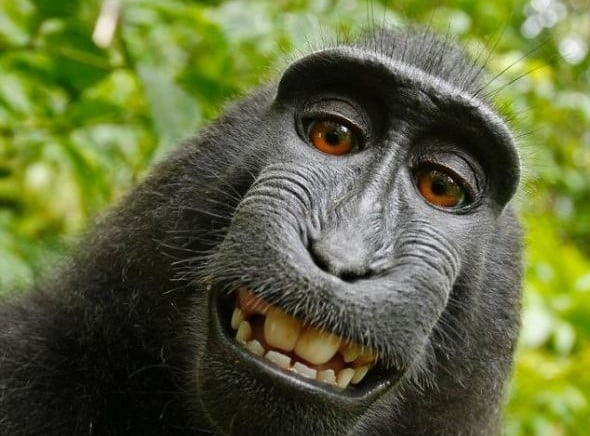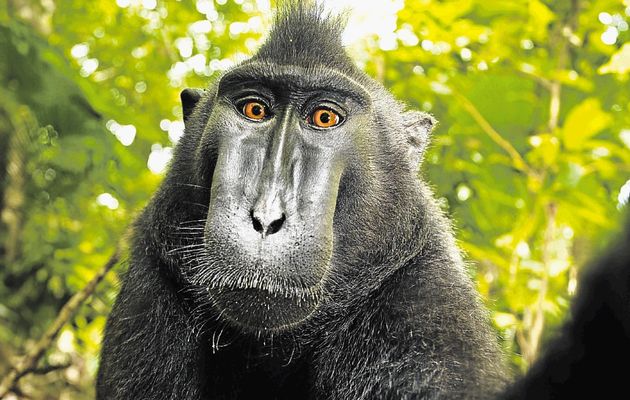People
See Photographer’s Hilarious Response to Monkey Selfie Lawsuit
"Monkey see, monkey sue" is not good law.

"Monkey see, monkey sue" is not good law.

Cait Munro

In September, People for the Ethical Treatment of Animals (PETA), filed an unbelievable lawsuit against British nature photographer David Slater that’s come to be known as the “monkey selfie” case. Why? The animal rights organization claimed that Slater had no right to distribute and sell a “selfie” taken by a crested black macaque named Naruto using his camera in 2011.
If you think the whole concept seems too ridiculous (and too potentially viral) to be true, you’re not alone: Slater’s lawyer filed a motion to dismiss that meets the claim at its level. It even begins with a take on a familiar joke.

A second selfie taken by a crested black macaque on David Slater’s camera.
“A monkey, an animal-rights organization and a primatologist walk into a federal court to sue for infringement of the monkey’s shared copyright. What seems like the setup for a punchline is really happening. It should not be happening,” reads the document, which is reprinted in full on Slate.
The motion seeks dismissal of the action for lack of standing and failure to state a claim on which relief can be granted. “Monkey see, monkey sue is not good law—,” it states, “at least not in the Ninth Circuit.”
All jokes aside, the motion asserts that the PETA claim is invalid for two primary reasons: one, copyright laws don’t mention animals. Two, under Ninth Circuit precedent, an animal would only have the right to file a lawsuit if Congress explicitly says that they do. PETA lawyer Jeffrey Kerr, however, hoped to establish a precedent.
“If we prevail in this lawsuit,” he wrote in a statement, “it will be the first time that a non-human animal is declared the owner of property rather than being declared a piece of property himself or herself.”
Slate writer Jordan Weissman got in his own snarky aside stating, “‘Monkey see, monkey sue,’ is the sort of line lawyers spend years dreaming they will one day get to write in a federal court document.”
So at least the suit achieved something?